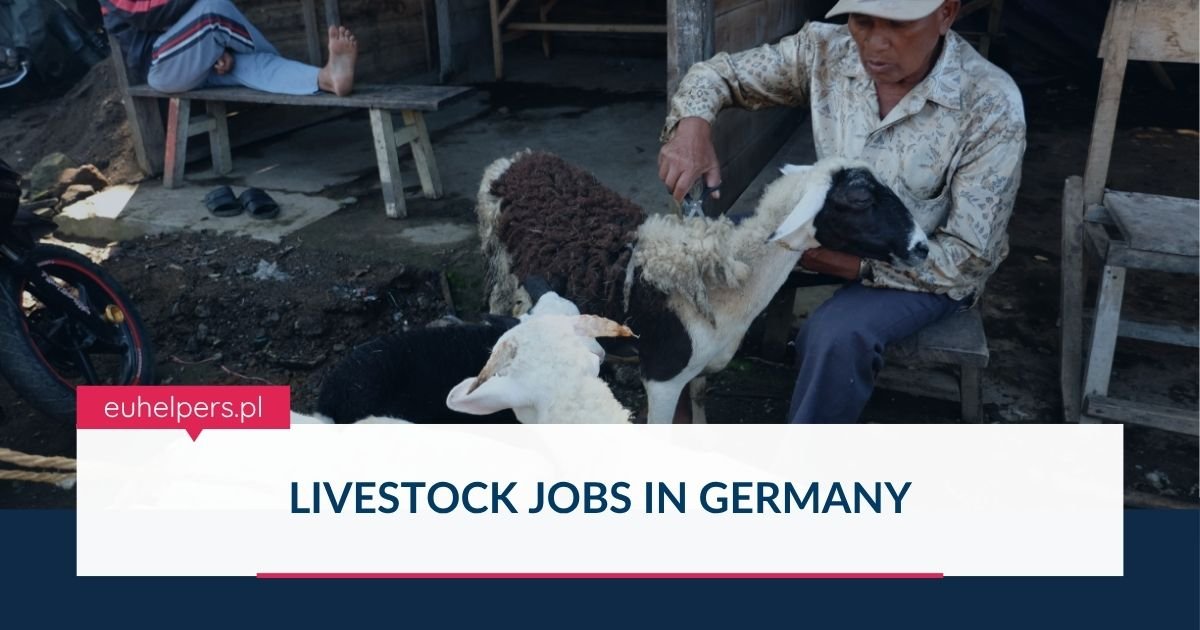Germany is one of Europe’s leading agricultural hubs, well-known for its efficient farming practices, advanced technology, and sustainable livestock management systems. With a growing demand for skilled workers in the agricultural sector, livestock jobs in Germany are opening doors for both locals and international candidates. From dairy and poultry farming to cattle breeding and animal health management, this industry offers a wide variety of career options.
Why Choose Livestock Jobs in Germany?
-
Strong Agricultural Sector – Germany’s livestock industry is modern, tech-driven, and globally competitive, providing stable employment opportunities.
-
High Demand for Skilled Workers – Rural areas often face a shortage of agricultural workers, making foreign applicants highly valuable.
-
Attractive Pay and Benefits – Salaries vary depending on experience, but workers also benefit from accommodation, healthcare, and in some cases, training programs.
-
Sustainability Focus – Germany invests heavily in eco-friendly livestock practices, offering exposure to cutting-edge farming techniques.
Types of Livestock Jobs in Germany
-
Dairy Farm Workers – Handling cattle, milking operations, and feed management.
-
Poultry Farm Assistants – Overseeing poultry health, egg collection, and farm hygiene.
-
Pig Farm Workers – Specializing in feeding, breeding, and monitoring animal welfare.
-
Animal Breeding Specialists – Working with advanced genetics and livestock improvement.
-
Veterinary Assistants – Supporting animal healthcare within farm operations.
-
Farm Equipment Operators – Using modern machinery for feeding, cleaning, and production efficiency.
Qualifications and Requirements
-
Basic Education – A high school diploma or vocational training in agriculture is preferred.
-
Experience – Previous farm or livestock handling experience is an advantage.
-
Language Skills – Knowledge of German improves job prospects, though some employers accept English-speaking workers.
-
Work Permits – Non-EU citizens require a valid work visa; EU citizens can work freely.
-
Physical Fitness – Livestock jobs are physically demanding and often require outdoor work.
Salary Expectations
-
Entry-level farm workers: €1,800 – €2,200 per month.
-
Experienced livestock specialists: €2,500 – €3,500 per month.
-
Supervisory roles and veterinary support: €3,500+ per month.
Additional benefits may include on-site accommodation, meals, health insurance, and seasonal bonuses.
How to Apply for Livestock Jobs in Germany
-
Online Job Portals – Websites such as EURES, Indeed Germany, and AgrarJobbörse list farming jobs.
-
Recruitment Agencies – Specialized agencies assist foreign workers in finding livestock opportunities.
-
Direct Applications – Many farms post job openings on their websites or local boards.
-
Work Exchange Programs – Internships and trainee programs provide entry-level experience for international applicants.
Career Growth in the Livestock Industry
Working in livestock farming can lead to career progression, including supervisory positions, specialized training in animal health, or management roles. Additionally, international workers gain exposure to German agricultural standards, enhancing future career prospects in Europe and beyond.
Livestock jobs in Germany present a rewarding path for individuals passionate about farming and animal care. With competitive salaries, high demand, and opportunities for international workers, this field promises both stability and growth. Whether you are seeking entry-level farm work or aiming for specialized roles, Germany’s livestock industry offers a wide range of opportunities to build a sustainable career.

